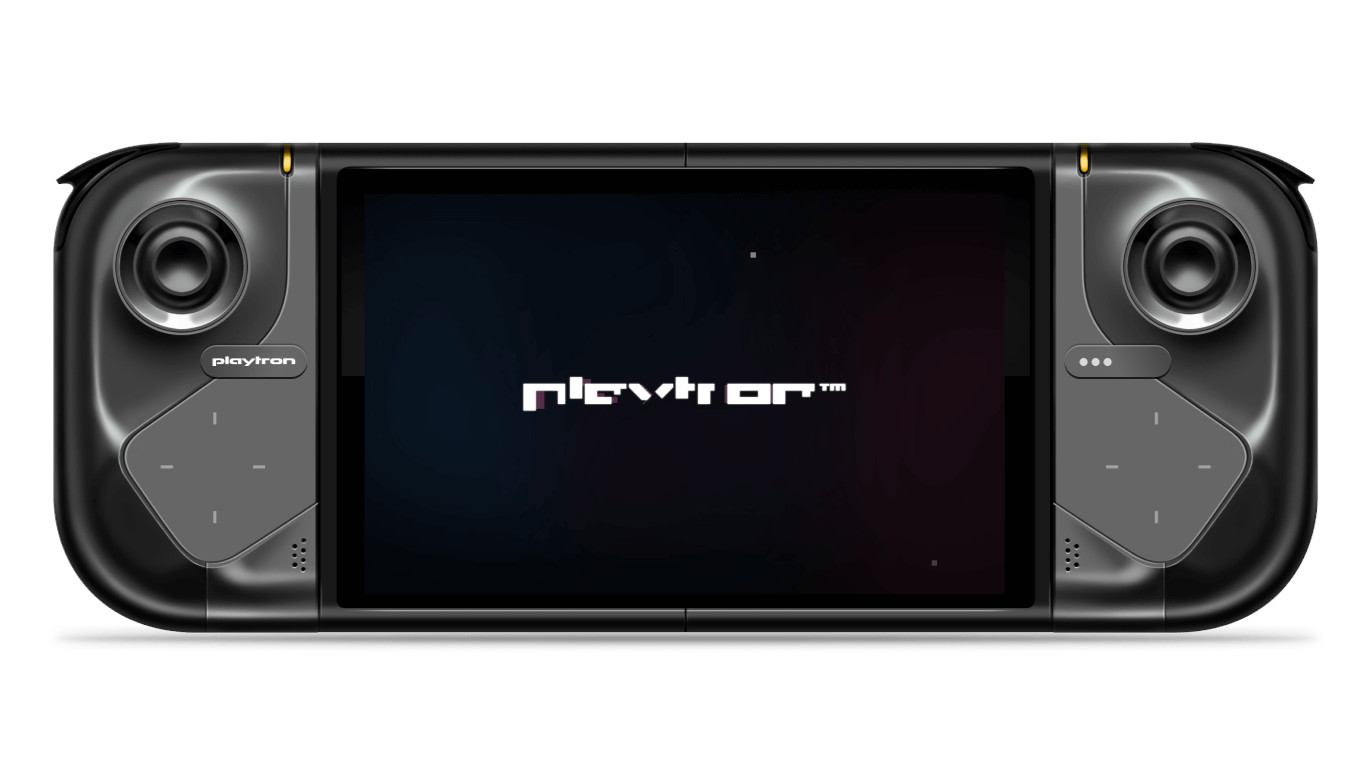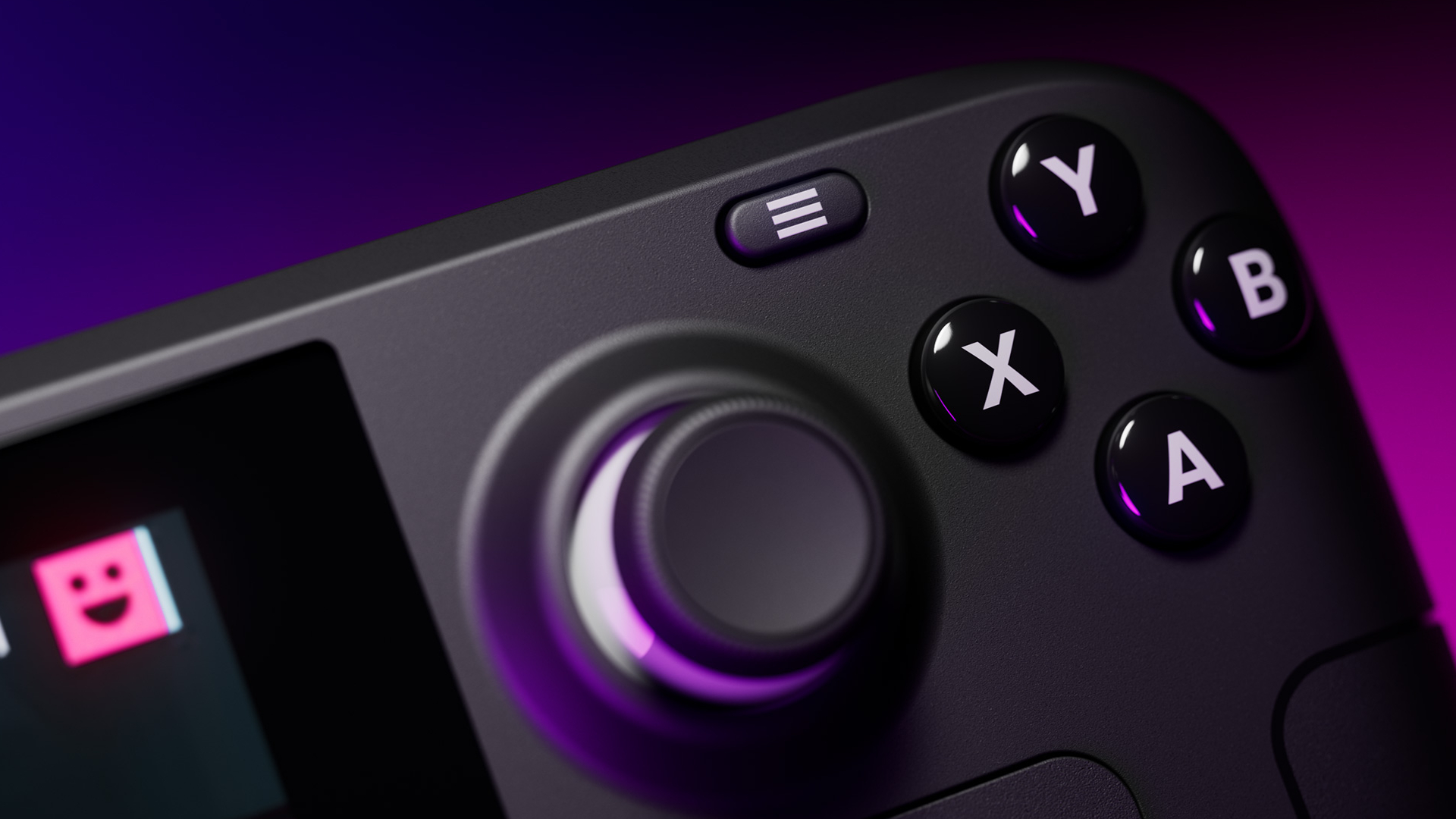Not a fan of Windows 11 gaming portables? Linux-powered alternative to Steam Deck might be the answer to your prayers
Seriously streamlined Linux-based OS could power the perfect gaming handhelds

Sign up for breaking news, reviews, opinion, top tech deals, and more.
You are now subscribed
Your newsletter sign-up was successful
Playtron is a name you might be hearing a lot more of before too long, as it’s a company with serious ambitions in the gaming handheld space, with an idea of how to better rival Valve’s impressive Steam Deck.
So far, the alternatives to the Steam Deck for gaming portables (outside of the Nintendo Switch) are Windows-based, and Windows 11 is not ideal or optimized for this purpose (a topic we’ll return to shortly).
Enter Playtron with a plan: the firm is concocting a lightweight Linux distro that can be installed on any handheld and plays Windows games (via Proton). It’s kind of like SteamOS freed from its shackles of being tied to the Steam Deck (for now).
Playtron reckons that next year, it’ll be a genuine rival to Windows 11 for gaming portables. CEO Kirt McMaster told The Verge in an interview: “We’re in conversation with numerous OEMs and mobile operators to build and deploy Playtron devices around the world in the 2025 timeframe.”
Right now, this Linux-based gaming OS may be in alpha still, but Playtron has secured $10 million in funding to realize its goal of providing a meaningful alternative to SteamOS and Windows 11 in the handheld world.

Analysis: A compelling alternative – but the clock is ticking
Windows 11 isn’t ideal for gaming portables as we’ve seen in devices such as the Asus ROG Ally or Lenovo Legion Go. There are obvious issues with an operating system not designed for small screens (and in negotiating the interface with handheld controls), plus other general clunkiness, as well as software issues (drivers and so forth).
Playtron is looking to cast all those problems aside, and alongside that, Playtron’s OS could also cut the costs for manufacturers, making third-party handhelds more affordable. Mainly because the company is talking about charging $10 for a license rather than the apparent $80 or so that’s being handed over to Microsoft by OEMs, a cost inevitably passed on to the consumer.
Sign up for breaking news, reviews, opinion, top tech deals, and more.
So, is it time to get seriously excited about Playtron? Well, maybe, but there are some potential pitfalls in the road ahead between now, in alpha testing, and this grand vision of a Windows 11 rival for handhelds.
Some gamers are already concerned that Playtron’s OS sounds a bit too basic – don’t expect a Linux desktop mode or similar functionality, this will be a streamlined and easy-to-use product that focuses on minimizing hassles.
It’ll be stripped-back, with a lightweight feature set designed more for novices. In the interview, Playtron even discusses partnering with Perplexity to implement an AI helper to prevent casual gamers from getting frustrated and quitting games due to being stuck on a particular puzzle, providing solutions for those who’ve been stumped.
Of course, that focus on ease of use could be a big positive – depending on what you want from your gaming handheld.
The other point to bear in mind here, and likely the biggest threat to Playtron, is that if it isn’t relatively quick to move with its new idea, we will eventually (in theory) see SteamOS arrive for handhelds outside of the Steam Deck.
Furthermore, Microsoft has ambitions in this space, with Windows 11 potentially getting a handheld mode that tackles some of the aforementioned shortcomings of the OS, and this is something the software giant is actively working on right now. Although all this is likely why Playtron is playing the casual gaming angle in terms of differentiating itself further.
Interesting times ahead, as they say. Playtron definitely has a sound idea, but as to whether it can come to fruition fully – and in a swift enough manner – to grab the attention of handheld-loving gamers before something else, well, we shall see.
Via Windows Report
You might also like
Darren is a freelancer writing news and features for TechRadar (and occasionally T3) across a broad range of computing topics including CPUs, GPUs, various other hardware, VPNs, antivirus and more. He has written about tech for the best part of three decades, and writes books in his spare time (his debut novel - 'I Know What You Did Last Supper' - was published by Hachette UK in 2013).